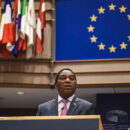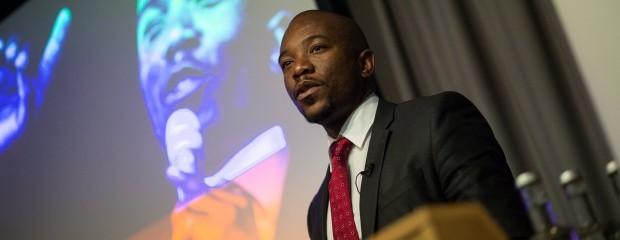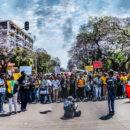Perceptions, Perspectives, and Representations: The Advocacy Debate
Quote from an Enough Project blog post:
“So until Sudanese people no longer fear that their village may be attacked by government-sponsored militias, that their mothers and daughters may be raped, that their sons may be forced to fight in a conflict they’re too young to understand, that perpetrators are immune to justice – and no longer fear the consequences if they speak up about these injustices – we as advocates have a role to play.”
Neha: Maggie I question this statement or description. Is this how you would categorize Sudanese people in general? Are there other facets of Sudanese existence other than fear, oppression and injustice which are equally important to relate? Do you think that this is primarily how Sudanese people would define themselves? Would their primary identity be one of a victim living in fear?
Maggie: You are certainly justified, Neha, in questioning my description. No, I would not categorize Sudanese people “in general” in the terms that I used above. We emphasized a particular aspect of the experiences of some, by no means all, Sudanese people.
I recognize the dangers inherent in focusing on the negative aspects of the situation in Sudan. However, as someone who is living and working in southern Sudan as a researcher, I have met Sudanese people who do live in fear of violence””at the hands of neighboring rival tribes in Jonglei state, at the hands of the Lord’s Resistance Army in Western Equatoria. However, the fact that they the fear of violence is part of their identity is an issue that should matter to people. The fact that violence in southern Sudan killed more than 2,500 people last year should matter not only to Sudanese people, but also to people who care about peace in Sudan.
I think it is fair to say that displaced people in Western Equatoria and Jonglei states””people who are trying to feed their families after this year’s poor rainy season or who are living off inadequate rations given to them by an international NGO””do not have the resources at their disposal to lobby the United Nations Security Council for a strengthened Protection of Civilians component to the United Nations Mission in Sudan mandate, or to call for better training of the SPLA officers who are currently conducting civilian disarmament campaigns throughout southern Sudan.
Neha: I think my concern is that all too often Sudan and other places in the world are represented through the lens of our perception of them, which is a lack-oriented view, where we see the only the things that people lack, or suffer from. We view things in this way, because we ourselves have those things – perhaps we even take them for granted – and our societies tell us that these are inherent entitlements of all human beings. It is difficult coming from a different cultural position, to see the many things that people in places like Sudan DO have, which we don’t; or the many wonderful ways of doing and being that exist here, that we can learn from. Interaction is always two ways and this is not reflected in this kind of discourse.
Even in difficult situations like conflict or food shortages, there are day to day relations between people that are somewhat normal and/or mundane. There are the “˜normal’ identities of people as fathers, mothers, friends and neighbours, which form an equally important part of who they are, and how they cope in these situations; more importantly there are many beautiful and inspiring things that people do in difficult times, to help themselves and each other. Shouldn’t this be highlighted too?
Another thing that I question in such narratives is what purpose, or rather whose purpose, do they serve? I often feel that we select our representation of people and places based on achieving our own goals as advocacy organisations. Granted this mostly stems from a desire to help, but I cannot see how perpetuating a stereotype of Africans as oppressed, fearful, hungry and poor, is the right way to help Africans.
Maggie: Tough and important questions. I think they are linked, since, as you say, narratives with a “lack-oriented view”””for example, advocacy efforts highlighting the “suffering of Sudanese people”””are aimed at achieving particular goals often set by external, non-Sudanese actors. The advocacy movement in the U.S. that started during the Darfur conflict and has expanded to address broader issues in Sudan has become increasingly nuanced in its policy recommendations to the U.S. government, but there is no doubt that the rhetoric used by this movement to discuss the situation in Sudan does emphasize what is wrong in Sudan. We are calling attention to the threat of a return to North-South war, to the lack of peace and security in Darfur, to the lack of “basic freedoms” these descriptions aim to call the Obama administration to action; we want our government to support efforts by the Sudanese parties to promote peaceful solutions to Sudan’s multiple conflicts. While I think this is a logical and transparent strategy, I can see (1) how the narrative employed by this movement is geared toward achieving our advocacy goals and (2) how these narratives do primarily portray Sudanese as oppressed.
As a non-Sudanese person who is presenting southern Sudan to a mostly U.S.-based audience who may never visit Sudan (or even Africa), I am struggling with the questions you raised and evaluating my own role, responsibilities, and objectives.
—-
Neha Erasmus is Programme Coordinator for Justice Africa’s Southern Sudan programme. Maggie Fick is the Southern Sudan Field Researcher for the Enough Project. She contributed this in a personal capacity. Both are based in Juba and wrote this blog post together to stimulate discussion between what remain to be two opposed and different ideological camps in the broader Sudan debate.







Fascinating Maggie Fick.
Your first quote began with Neha Erasmus’ questioning of Enough’s statement: “So until Sudanese people no longer fear that their village may be attacked by government-sponsored militias…we as advocates have a role to play”. In turn, your follow-up reply was “You are certainly justified…However, I have met Sudanese people who do live in fear of violence—at the hands of neighboring rival tribes in Jonglei state, at the hands of the Lord’s Resistance Army in Western Equatoria…”.
I am no researcher but it seems to me that you are defending a statement by excusing it through another. This is certainly not a logical reply.
This brings me to your reply to another long but very interesting question. I will jump to your reply because it ties in very well with your earlier quote: “The advocacy movement in the U.S. that started during the Darfur conflict …has become increasingly nuanced in its policy recommendations to the U.S. government, but there is no doubt that the rhetoric used by this movement to discuss the situation in Sudan does emphasize what is wrong in Sudan”. Well, I beg to differ. Let’s give an example of where rhetoric and reality can be mismatched by reminding you of your earlier reply. Earlier, you were defending “government-backed militias” instead of admitting that such a characterization is misleading in the grander context since it is clear that you have met “Sudanese people who do live in fear of violence—at the hands of neighboring rival tribes in Jonglei state, at the hands of the Lord’s Resistance Army in Western Equatoria…”.
Hernando de Soto suggested that western nations can be characterized as two headed Hellenistic mythical beasts of right and left. What is clear to me, given your reply is that even the left cannot make wholesome admissions that could neutralize their roles which are often funded by sensationalism. Well Maggie, I am an educated and culturally Americanized Northerner Sudanese. I have evolved my perspectives dramatically over the years. And now, like Hernando, I too fear and have great antipathy towards the left, for I view them as greatly inimical to the unity, preservation, and peace of Sudan. God help us all.
Jamaledin
I think Neha’s questions confuse a few things. First of all, the primary goal of lobbyists or activists is not to “portray” the Sudanese, or anyone else. The point is to draw attention to policy problems that those being lobbied might be in a position to affect.
To put it in another frame, does one worry about portraying tens of millions of Americans in a “lack-oriented view” or as poor or needy when calling attention to their lack of insurance and calling for universal health care? Of course not. The issue being discussed is a lack of health coverage, which most Americans can probably agree is a negative thing. Likewise, calling attention to fundamental lacks in human security should be the main point of activists working on human rights.
Now, perhaps I’m wrong here, but Neha seems to be implying that not all people are culturally entitled to things like human security: “our societies tell us that these are inherent entitlements of all human beings.” Are things like food, shelter and the right to speak one’s mind not inherent entitlements to all human beings? Isn’t that the whole point of documents like the Universal Declaration of Human Rights?
Sean when comparing advocacy on Sudanese issues by Americans, with advocacy on American issues again by Americans, you bring up some important issues. It is interesting that there is no Sudanese advocacy movement for free healthcare in the United States isn’t it? I think that is because healthcare is an American issue that must be discussed and decided on in America.
Americans have the advantage of presenting the case of Americans who lack healthcare with nuance and subtlety, and because America has the tools and weight to define itself, with all its contradictions, perplexities, beauties, quirks, strengths and weaknesses, people will never imagine that millions of Americans are walking the streets right now dying of disease, begging door to door for medicine etc.
Look at the news coverage of the American healthcare issue: it has been based around economics and politics mostly, rather than around a call for human rights and the struggle for obtaining ‘freedoms’ in America. Since so much of the coverage of Africa comes from outside of Africa, the picture painted is very one dimensional. As an advocate you need to take responsibility for the outcomes of what you do, intended or not.
For me it is not about entitlements. I can be entitled to everything in the UDHR (even if I agreed with the document), but if I live in a poor town, I’m not going to get everything. – it’s as simple as that. Therefore I think it’s fallacious to look at it from a perspective of entitlements. I grew up in Kenya. I never believed it was the entitlement of all human beings to have what you call ‘human security’ simply because I lived in a city which had a lot of crime and therefore no one had any entitlements, just luck. I had a wonderful childhood though and love Kenya very much. My point in the article though, was that when you come from a perspective of thinking ‘wow everyone should have that’ you often miss out on seeing ‘wow that’s amazing’.